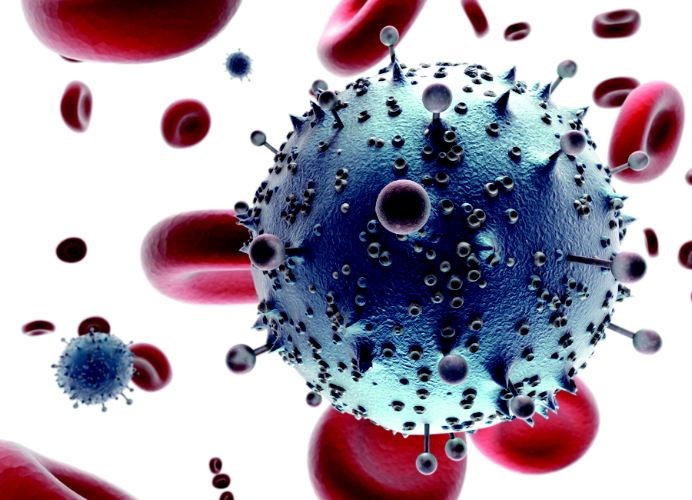Starting Monday, all patients 14 years old and older admitted to the University Hospital of Northern B.C. will be offered a routine HIV test as part of their admission blood work.
Patients will have the right to refuse the test but Bareilly Sweet, Northern Health regional coordinator of blood-borne pathogen services, hopes the majority of people will agree to be tested.
"One hundred per cent would be great. But we'll take 80 to 90 per cent," Sweet said. "If we can reach 50 per cent in the beginning, that is a success."
A similar program that began in Vancouver in October 2011 has achieved a 94 per cent participation rate.
Studies have shown that approximately 25 per cent of people who are HIV-positive are unaware they have the sexually-transmited disease, she said. The goal of the program, funded under the province's From Hope to Health: Towards an AIDS-Free Generation initiative, is to detect those cases sooner - improving the health and quality of life of the patient and preventing the transmission to other people.
"When people are in treatment they don't spread the infection, it stops that," Sweet said.
In 60 per cent of new HIV cases, the patient has already been treated for some complication of the condition prior to being diagnosed, Sweet said.
In 2011, 26 new HIV cases were diagnosed in the Northern Health region and 23 new cases were reported in 2012, she said. So far the number of new cases in 2013 is expected to be higher than last year, Sweet added.
Across B.C. an average of 300 to 400 new HIV cases are diagnosed each year.
With the high volume of patients -at least 100 per day - going through the hospital in Prince George, Sweet said, she expects the number of new diagnosis to rise.
HIV isn't restricted to people who engage in higher-risk lifestyles -such as intravenous drug use -Sweet said. Anybody who is sexually active is potentially at risk.
Nor is HIV the death sentence it once was, she said, thanks to new treatments, which significantly reduces the health impacts and can prevent HIV from developing into AIDS.
"It's a chronic disease. You can live a long life [with HIV]," she said.
Sweet said she expects the program will have a minimal impact on hospital operations at UHNBC. Blood for the tests will be taken at the same time as other blood samples are taken, and the samples will be packaged for transportation by the hospital laboratory.
The tests themselves will be conducted at the B.C. Centre for Disease Control in Vancouver, she said.
Once the Prince George project is underway, Sweet said she and her team will begin working to expand the program to all hospitals in Northern Health's area.
"The strategic plan is to have all acute care facilities in all communities in Northern Health testing by 2016," Sweet said. "It's a huge initiative, but we'll strive to make it happen."
Positive Living North executive director Vanessa West said she hopes the initiative will help normalize testing and reduce the social stigma facing people with HIV/AIDS. Positive Living North is a Prince George-based agency that provides services for people living with HIV/AIDS and promotes public education and awareness about the conditions.
"People think of people with HIV/AIDS as men who have sex with men, or intravenous drug users," West said.
However, people with HIV come from all walks of life and all income levels, she said.
Early detection of HIV is critical to stopping the spread of the disease, West added.
"The earlier you find out yourself, the less likely you are to transmit the disease," she said. "Twenty-five per cent of people don't know they have HIV, but they're causing 75 per cent of the new infections."
And the longer HIV goes untreated, the higher the chances are of having serious health complications as a result, West said.
While treatment for HIV once could mean as many as 20 pills a day with punishing side effects, modern treatments can mean as little as one pill a day, she added.
But despite improvements in treatment and improved awareness of safe sex practices, HIV infection rates continue to rise in Northern B.C. she said.
"The numbers haven't jumped dramatically. But overall from 2002 to 2012 there [has been] a steady increase," West said.
Positive Living North takes in an average of 12 to 20 new clients per year, she said, which includes newly-diagnosed patients and people with diagnosed conditions who move to Prince George.
Northern B.C. is considered a hotspot for new HIV infections, according to the B.C. Centre for Disease Control, along with Vancouver's impoverished Downtown Eastside area, West said.
In addition to the hospital, HIV testing is available through the Prince George AIDS Prevention Program/Needle Exchange at 1108 Third Ave. A nurse on staff can administer a 60-second test using a pinprick of blood.
Residents can also talk to their family doctor about getting tested.
For more information, go online to www.hiv101.ca.



